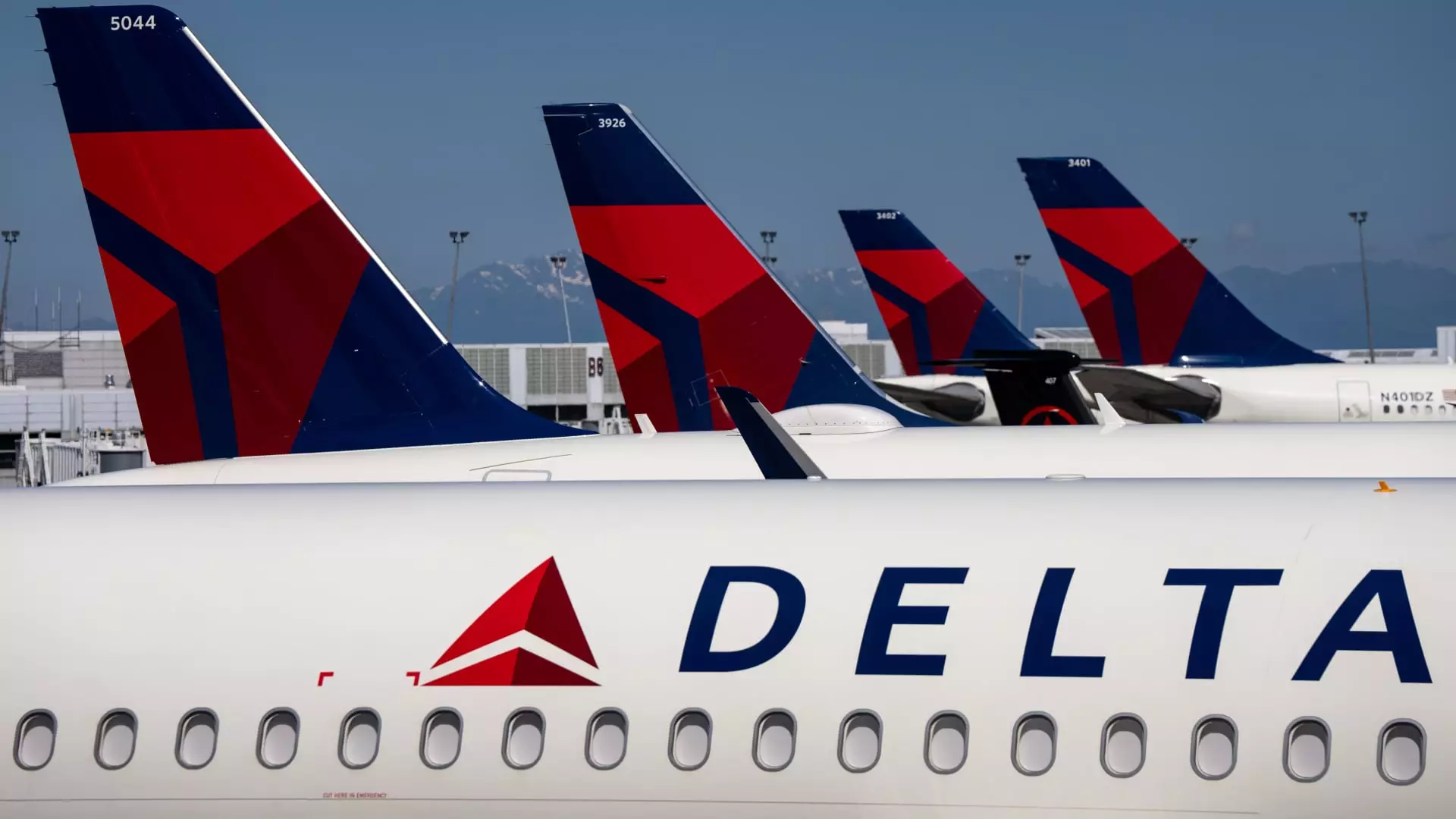Delta Air Lines is grappling with a staggering downward revision of its revenue and profit outlook for the upcoming quarter, and this is more than just a momentary dip; it signals a concerning trend within the broader travel sector. The airline has tempered its expectations for revenue growth to a mere 5%, a significant retreat from the optimistic forecast of 6% to 8% only a couple of months ago. The adjustment may seem minor on the surface, but when you consider that it translates to an eye-popping profit per share reduction—from 70 cents to a disheartening range of 30 to 50 cents—it becomes evident that Delta is facing substantial headwinds.
What should worry investors and consumers alike is the underlying angst that Delta’s announcement reveals: a growing unease in consumer and corporate confidence. CEO Ed Bastian’s assertion that he doesn’t foresee a recession feels out of touch, bordering on reckless optimism. This is a sentiment echoed in a myriad of industries struggling with inconsistent demand, raising the question of whether Delta is trying to paint a rosy picture amidst gathering storms.
Consumer Confidence: The Canary in the Coal Mine
Bastian’s remarks on dwindling consumer confidence cannot be ignored. The decrease in leisure and business bookings isn’t simply a passing phase; it is a tip-off that consumer sentiment is fragile. The interconnected nature of the economy today means that a dip in consumer travel behavior can have cascading effects, hampering recovery ambitions for major airlines not just like Delta, but competitors such as American, United, and Southwest Airlines. Their collective strategies will likely be scrutinized in the upcoming industry conference, but as Delta’s shares plummeted over 13% in after-hours trading, it seems unlikely that any of them will present uplifting forecasts.
Adding insult to injury, Delta is facing additional scrutiny following two recent aviation incidents—one involving a regional jet and an Army helicopter, and another concerning a crash landed in Toronto. Such safety concerns can have lasting impacts on consumer behavior, leading potential travelers to rethink their plans. In a market already faltering, with signs of weakened consumer spending, this is the last thing Delta needs.
The Illusion of Stabilization Post-Pandemic
Historically, the travel industry has shown resilience following downturns, yet Delta’s current predicament raises eyebrows. At a time when the expectations were for a smooth resurgence post-COVID-19, airlines are now revealing cracks in the façade of recovery. While Delta claims that “premium travel” and “loyalty revenue growth” are still in line with expectations, this could simply be a marginal comfort amid a broader decline.
This duality creates a troubling juxtaposition: while certain segments of travel appear to be thriving, the reality is that the overall demand landscape is deteriorating. The consumer flight experience lags behind in terms of safety, comfort, and perception, which can only exacerbate this situation. As the industry nears what many had hoped would be a vibrant rebound, it now sees itself clinging to dwindling optimism, already showing signs of a downturn that could redefine market dynamics for months, if not years, to come.
With Delta leading the way in flagging these concerns, the question arises: can the airline industry as a whole weather this potential storm, or will it be swept away by the storm clouds of reality?

